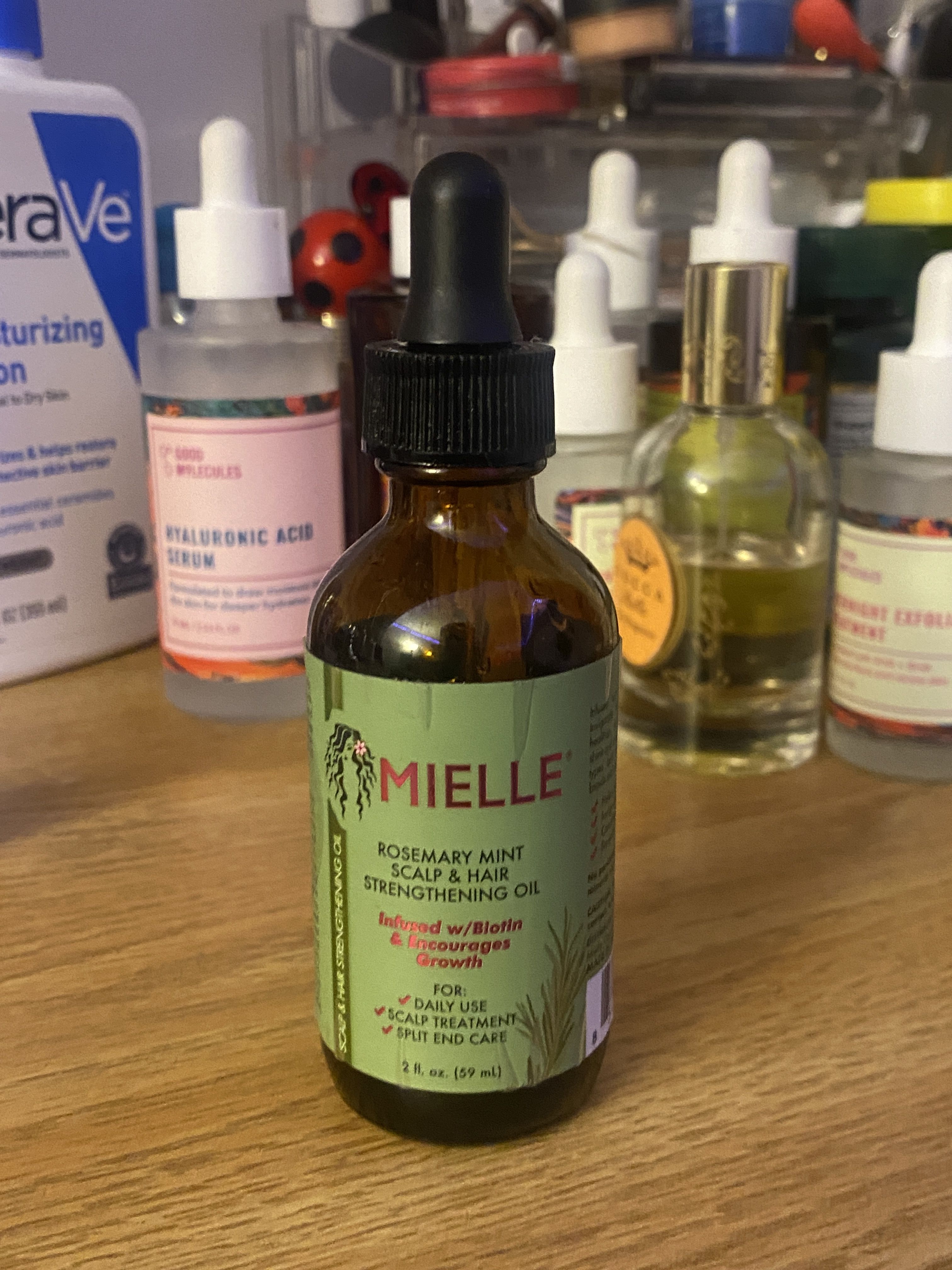TikTok promotions make products go viral every week, but when Mielle Rosemary Mint Scalp & Hair Strengthening Oil went viral, controversy came along with it.
Monique Rodriguez founded Mielle Organics in 2014. In a short time, the company established itself as a household name for Black women because of Rodriguez’s dedication to creating natural products for textured hair. The Mielle Rosemary Mint Scalp & Hair Strengthening Oil is one of the brand’s best-selling products. According to Mielle’s website, the oil is supposed to “Nourish hair follicles, smooth split ends, and help with dry scalp.”
How it all started

In December 2022, 22-year-old Tik Toker Alix Earle, an influencer with 4.4 million followers, mentioned the hair oil in her “Top 2022 Amazon Purchases video.” In the video, Earle claimed that after using the product for only a month, she saw “tremendous hair growth.” After the video, more white Tik Tokers started to review the product and it quickly sold out. Some sellers upped the price from $9 to $29. The product’s increased popularity turned into backlash and frustration from women of color with textured hair. They did not see the reason why someone with straight hair would advertise a product that was not made for their hair type. Even in the comments under the video women of color voiced their frustrations.
One user wrote,” Y’all have thousands of products to use but just had to have the one for type 4 hair.” Another said, “Mielle oil is in the texture aisle for a reason. Please let us have something for our hair.”
Meanwhile, other responses chided commenters for taking the issue so seriously and told them not to “gatekeep products.”
Here’s the problem
“I feel like it’s fairly insulting, and I feel like we can never have anything to ourselves,” said Tiffany Bundy, junior psychology major. “I feel like some white people are trying it out to see if it works, but they know the target is African American people, so now it’s just a ‘popularity spiel’ or ‘trend’ on TtikTok that has really gotten out of hand.”

This isn’t the first time for controversy in Black hair products. When brands aimed at textured-haired people get popularized by white people, aside from the products selling out, the brand also might change the formulation of their products to better appeal to a white audience. Popular brands for textured hair such as Shea Moisture and Cantu were accused of changing their formulas once they gained more attention from white consumers, leaving textured hair people with products no longer suited for their hair types.
“Once the product gained some popularity, I started to get a feeling that the ingredients might change and it would not be the same product, but a new one that could be possibly harmful and not provide the same results,” said Christel Darcelin, junior criminology major.
Rodriguez responded to these questions in a statement released to Instagram, “So you know that my journey with Mielle started from a place of creating the product I wasn’t finding in the marketplace. We remain forever committed to developing quality, efficacious products that address the needs states for our customers’ hair types! Sincerely, The Queen of Hair.”
Hair care aisles hold a vast difference in the number of products marketed toward textured hair versus those marketed toward non-textured hair. The “disappearance” of one product for textured hair has a greater impact and can be seen in the small number of options presented.
“I think that that’s why it is important to have brands that cater to the needs of Black women’s hair texture. It’s hard enough to find something that works but has to be on a constant search because things like this keep happening and it’s exhausting,” Darcelin said.





